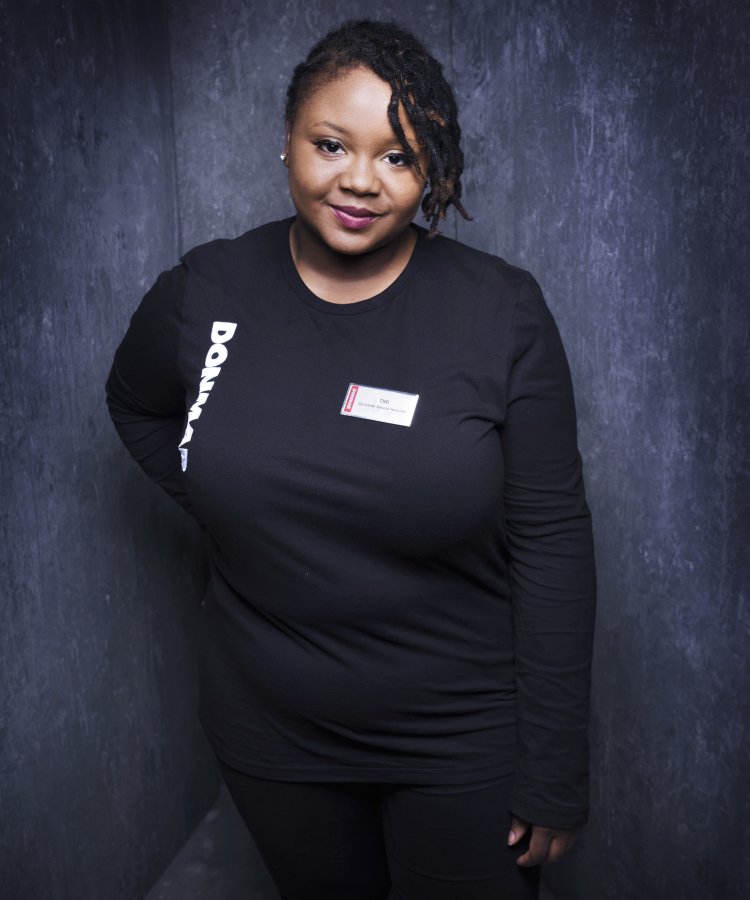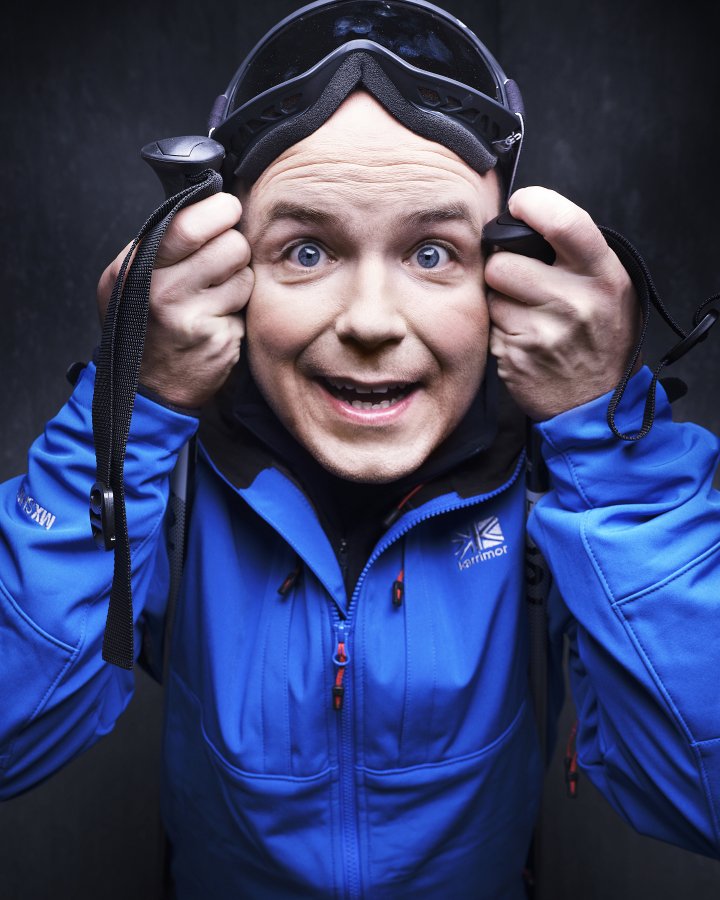Tiri Jele, Customer Service Assistant, Donmar Warehouse

What has the journey been like to getting back to the theatres reopening?
As the theatres reopened, I had the chance to go back into my creative side. Because prior to the lockdown and the pandemic, I was actually in Uni. And I’d been doing a lot of work with art organisations and hosting events and also being part of events, but not being able to fully immerse myself in the theatre.
So as soon as the lockdown was lifted, I looked for a job in the theatre so that I could be around people again and around recreation and having fun and also getting to immerse myself back in the arts
How does it feel now that everything is reopened again, are you enjoying being back?
I’m really enjoying being back, I’m enjoying being around so many different people, talking to customers and patrons all the time and also the work environment. You sometimes don’t realise your need for people, whether it’s a passing conversation, a smile, or a direction, you don’t realise we need for people until you’re by yourself. So, it’s been really nice to actually remember that by nature I’m a people-person, like I love people. I love to talk. I love to laugh. So, I’m really enjoying being back.
Why is it that draws you to the theatre?
For me, my background is in writing. So, I do poetry and I write, you know, papers, particularly academic papers. But I’ve always wanted to diversify my writing, and I love to read. So, my main things that draw me to the theatre is stories. Storylines, how stories can be told, how the staging, the lighting and everything, the acting as well as the script itself can come together to build a bigger picture. I love stories and I come from a storytelling tradition.
So that’s what I enjoy the most, as well as watching the performances because I feel like I’m the kind of person… I like behind the scenes, but I also enjoy being immersed. I just don’t want to be immersed at the front centre all the time, so I enjoy both back of house and front of house. The writing process, the reading, you know, casting calls and looking at other people, acting, and then the writing process. But then also watching, looking at how everything comes together.
What did you miss most about when the theatres were closed?
The lack of interaction between people of like mind. Meeting people that also enjoy going on this journey at the beginning of the play. Sometimes not really knowing what’s going on, and I tend to go to theatres blind, outside of just having the basic synopsis, I try not to read too much about the writer or what’s going on in that theatre. And I go in blind so that I can be taken on a journey. So, I’m really enjoying that aspect of beginning a journey with people that you’ve never met before and kind of leaving and looking around the room and seeing that there’s a community of feeling. And there’s a community of like, you know, we’re all here together at the same time, experiencing similar things. That’s what I enjoy the most.
Rory Kinnear, Force Majeure, Donmar Warehouse

What has the journey been like, getting back to theatres reopening from your perspective?
Yeah, I mean, I had been asked about Force Majeure quite early on into the pandemic, and so it was a question of, when was it going to happen. And when was it going to seem safe and secure that it would actually happen, when we when we actually began to programme it. So, there was always this promise that there was a job to come back to, and something to do.
And in many ways, actually, having that extended period of time has given us more time to work on the script, and so we actually feel further ahead than maybe you would do working on a new play in other ways. So, taking some positives out of it, that is one of them.
But in terms of as an audience member as a theatregoer myself as well. Well, that thing of that huge desire to be amongst a group of people and sharing the sharing the experience and having different perspectives and different takes on things but collectively experiencing a live event together has been something that you don’t really realise how much you miss until you’re back amongst it.
How does it feel being back, both as a viewer and as an actor?
Well, as an actor, we’re just in our first few days of rehearsals, and for me that is always the bit which reminds me in the most sort of overwhelming sense of why I am an actor and why I do what I do. And coming together with a group of people you might not know before, but you know in three months you’re going to know each other so much better. And investigating the work of a writer.
And so yeah, as an actor, it’s like this is the longest I’ve ever gone without doing a play. I think probably the longest before was maybe a year, and this is now three years. So, it feels like yeah, in some ways it feels like your first taste of honey again.
What is it that you enjoy the most about being on stage and working in the theatre?
I love the chance to do it differently every night. I love the experience of working with your fellow actors and what that does to your performance and how your energy of the day changes what they might do and vice versa. And I love what the energy of an audience brings to a performance and how they change in effect, and you realise that they are not – and indeed, when I’m an audience member – we are not distant observers. We are part of the performance as well. And you don’t know who they’re going to be or what kind of days they’ve had. And seeing how large crowds work together and how they’re shaped by effects of the day. That can be like, you know, global events, sort of, you know. One’s done plays on the days of global events, and you see the impact it has on an audience response to something completely different. How all of art is seen through the fulcrum of the day that you’ve had, the kind of year that you’re having as well. So, in many ways, whilst you don’t get to meet an audience, you don’t get to necessarily see who they are. You do have an experience of their sort of togetherness and the energy that they bring to you as well.
And then finally, how does it compare being on a stage to working onscreen?
In many ways, it’s quite similar in the sense that you’re creating a character. You’re working with a group of people to tell a story. Obviously, you know there are differences in that as actors in the theatre, you’re there all the time, whereas it’s the crew who there all the time who have the sort of the full ownership of the sort of the whole experience of it. But, you know, if you’re in quite a lot as an actor, you have that sense of commonality as well.
But I guess the big difference is that sense of you do a scene in a day and then you never actually do it again on camera, and to get the opportunity to investigate it further. I always think, at the end of a run, I’m sort of embarrassed that people ever came and saw at the beginning. Because you know so much more about it and this kind of thing, which is fleeting in in film sense of it. You know your character at the end of a shoot so much better, but you’re unable to do the scenes that you’ve shot again before, with that knowledge. You can do that in the theatre.
Could you sum up what theatre means to you?
Theatre means to me… What I chose to do. I became an actor because of the theatre. It’s all I ever wanted to do. I wanted to work in the theatre and put on the plays with the kind of… and have the kind of impact on people that actors had when I was growing up when I first started going to the theatre. It’s, you know, started as an audience member and I’m sure it’ll end as an audience member as well. But in between, to have been able to have that opportunity to do what I wanted to do as a kid.